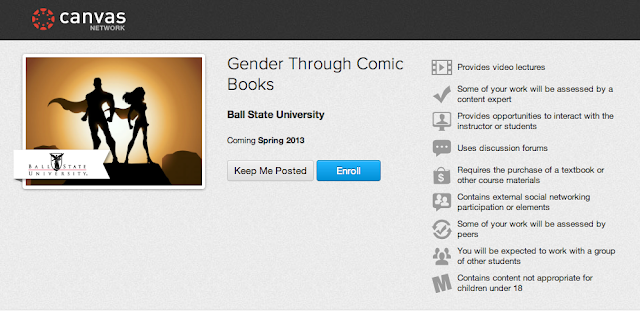MOOC Exploration continues, with the Canvas Network

One of my friends and colleague works for Canvas now, and we happened to be at the same NERCOMP workshop when news of the Canvas Network hit the wires. Honestly, I've been so MOOCed out recently with all the MOOC coverate and punditry that it's not easy to keep up with all MOOCs all the time. And, to be honest, if you want to really assess a MOOC strategy, my feeling is that you need to be a student in that MOOC in order to really gauge what's going on. I have just started saving all MOOC related articles, opinion columns and blogs (that are more than 1 or 2 paragraphs) to PDF so I can go through them more leasurly once I am done with my current research projects (and maybe something can come out of those that is more scholarly than just a "I read them" note on my blog) That said, one of my twitter connections reminded me of the Canvas Network and i gave it a quick look. There aren't that many courses on it just yet (or it didn't seem so anyway) but I ...


